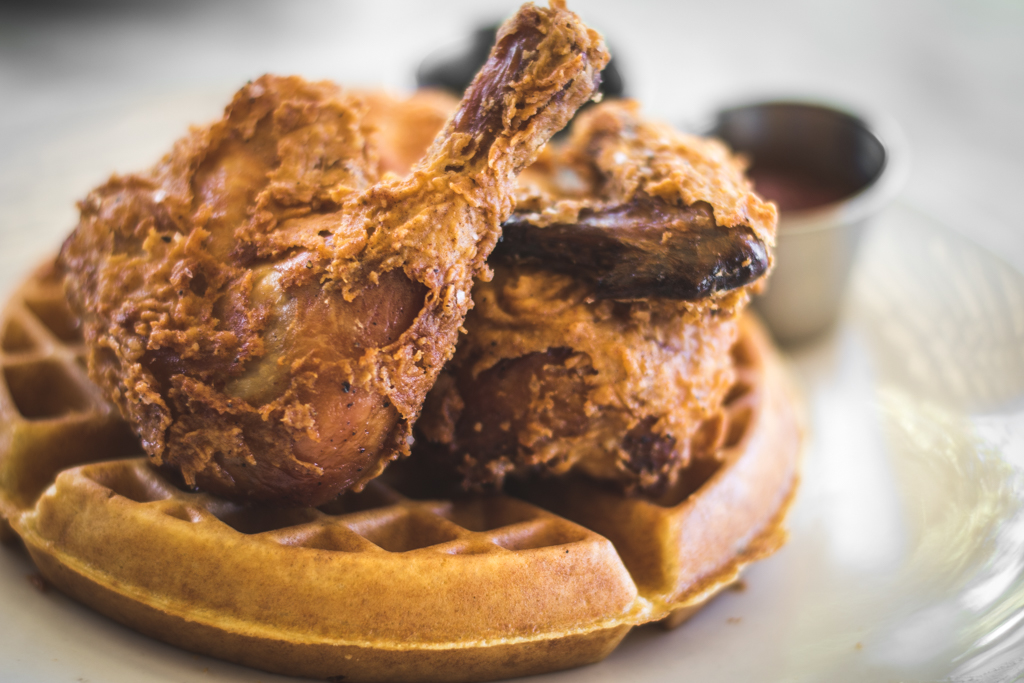
We asked Tucson chefs this question and let them answer as briefly or in as much detail as they wanted. Here are their responses.
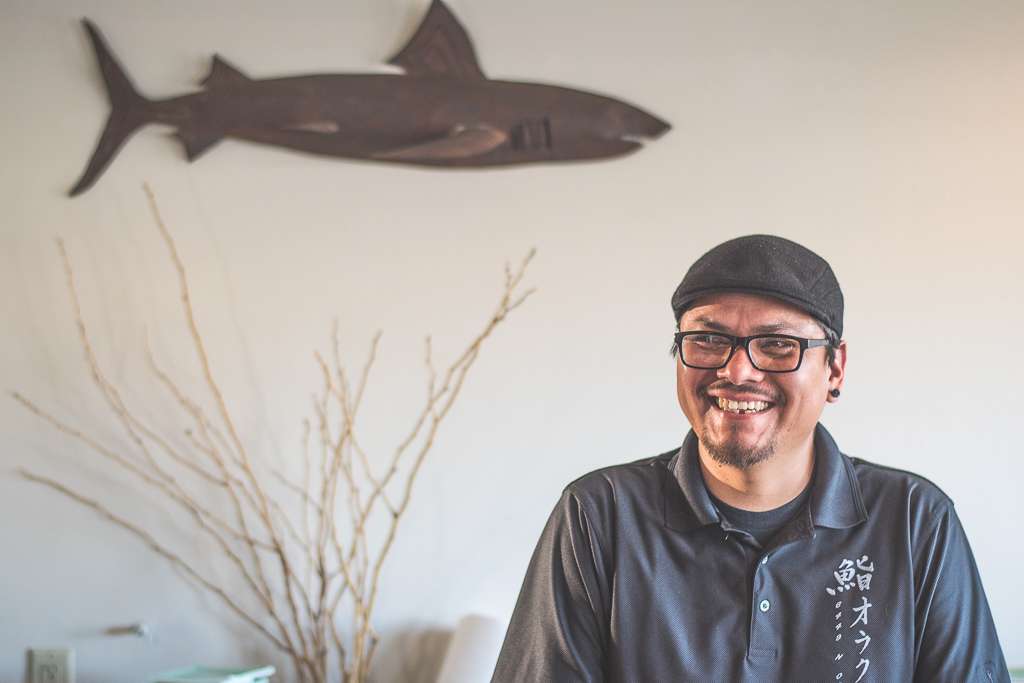
“Work hard and stay humble.”
View our October 2017 Nine on the Line with Tommy Begay.
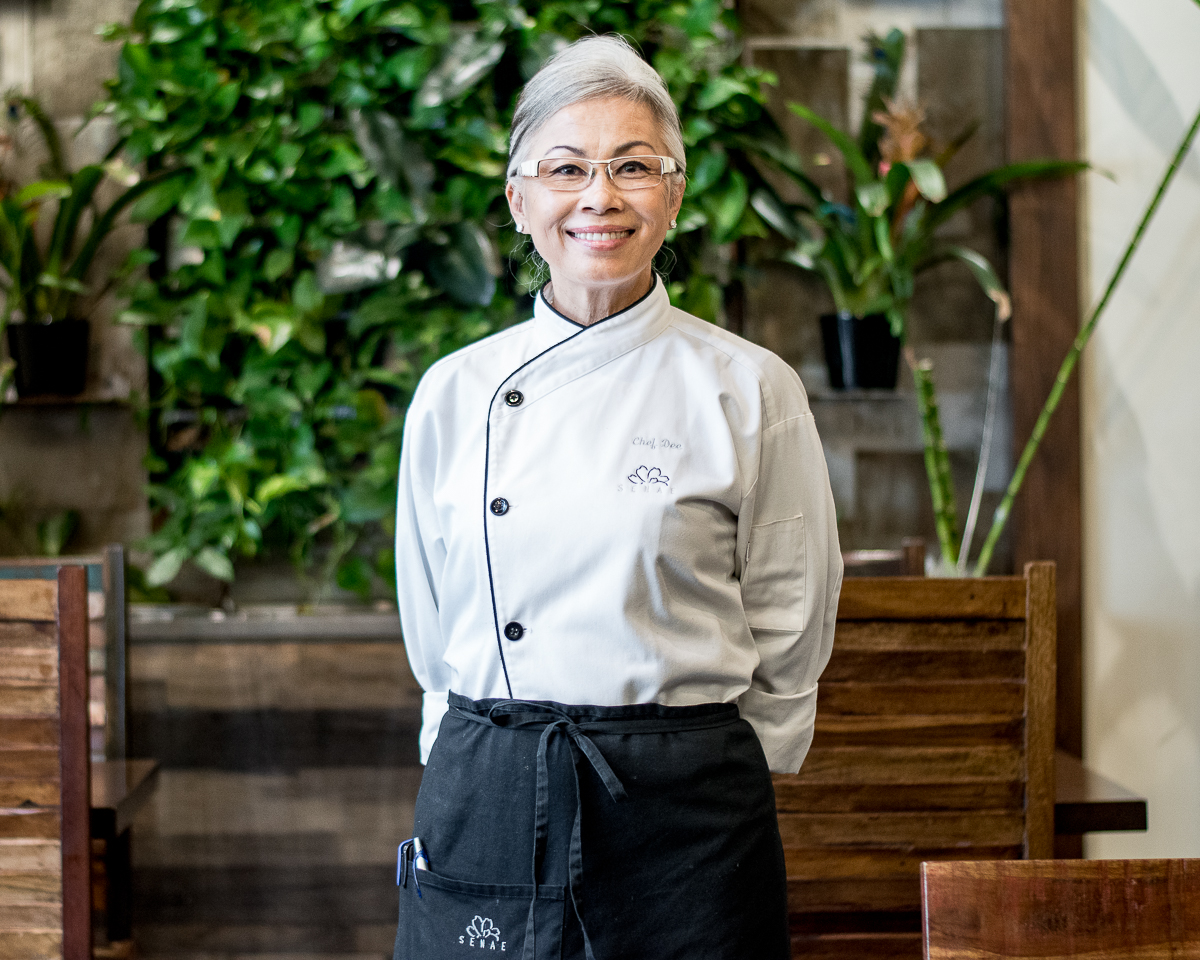
“First of all, you need to be passionate about cooking. Creating a beautiful, healthy, delicious meal is part science and part art. Your dishes are your creation, your own expression… your masterpiece. That said, you need to be aware that being a chef is not only about cooking food. It also involves managing your kitchen, which includes scheduling and managing staff, ordering supplies, managing costs, maintaining the cleanliness of your kitchen, to name just a few. Finally, you need to be available to meet your guests… always with a smile. You need to have thick skin — be able to hear criticism even when the guests are wrong or being unreasonable.
I love what I do. The positive feedback I get from my guests makes it all worthwhile. So, follow your passion, be creative, and work hard, and you too will enjoy being a chef as much as I do.”
View our October 2017 Nine on the Line with Dee Buizer.
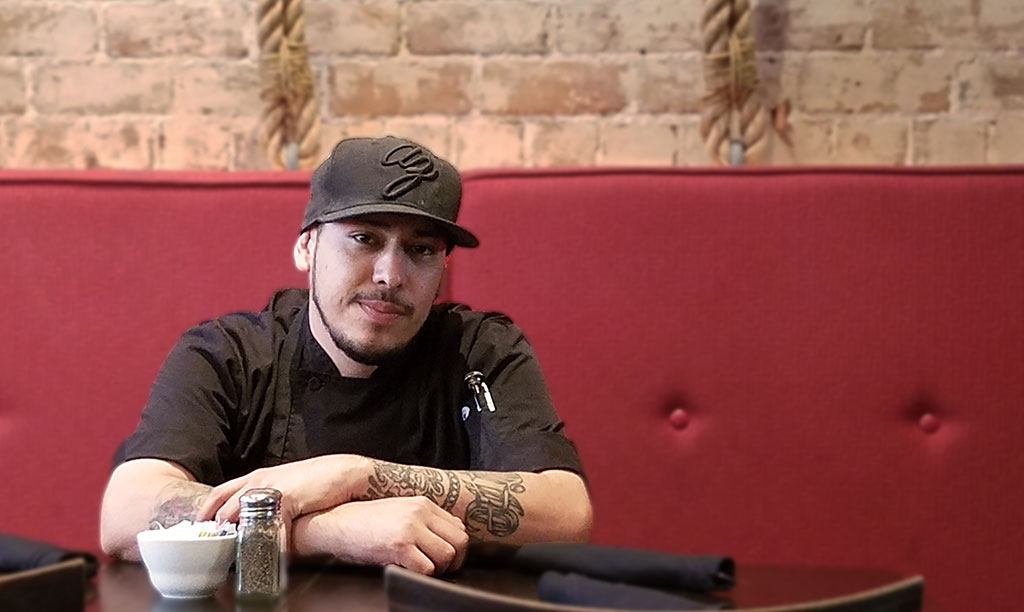
“Make sure this is something that you want to do. If your heart isn’t in it, don’t waste your time. This business isn’t for sensitive or weak-minded people. Your heart has to be on every plate you put out. If you’re in the kitchen just for a paycheck, you’ll never make it. Stay focused, and keep up with the push. That’s my advice… or something like that.”
View our August 2016 Nine on the Line with Ben Caballero.
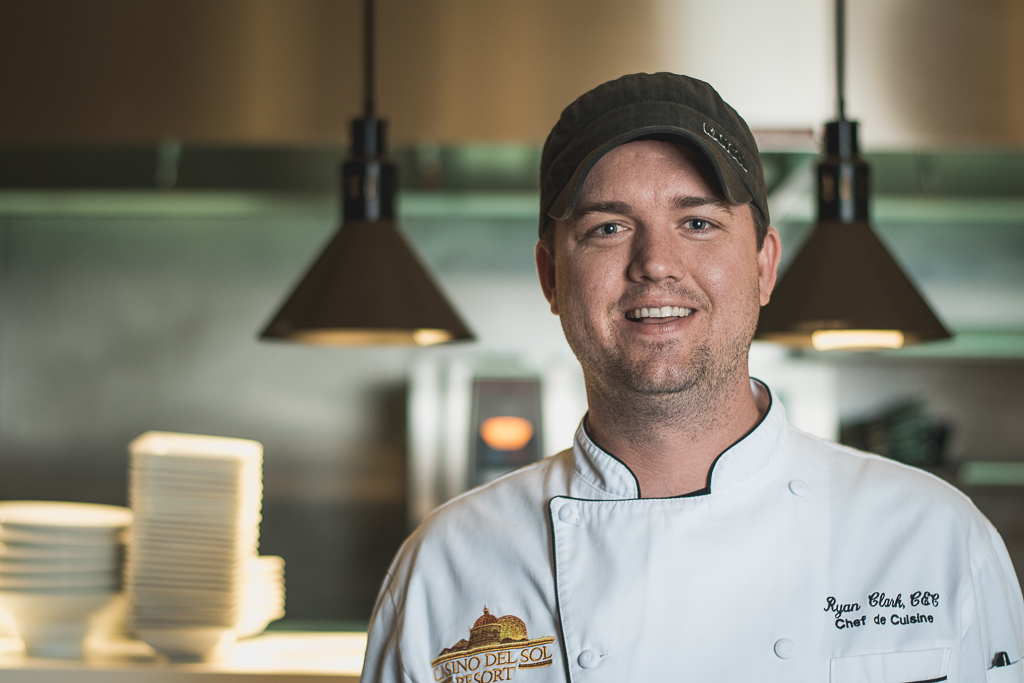
“Have a deep passion and the energy to enjoy what you do every day.
1. Try it. Do you still like it, really?
2. Quit. Find a job that’s easy. One you can sit at a desk, take off holidays and share meals with the family.
3. Oh, you’re still here? Good. Now go to school and don’t cut corners. Head down, yes chef and never quit. Call me.”
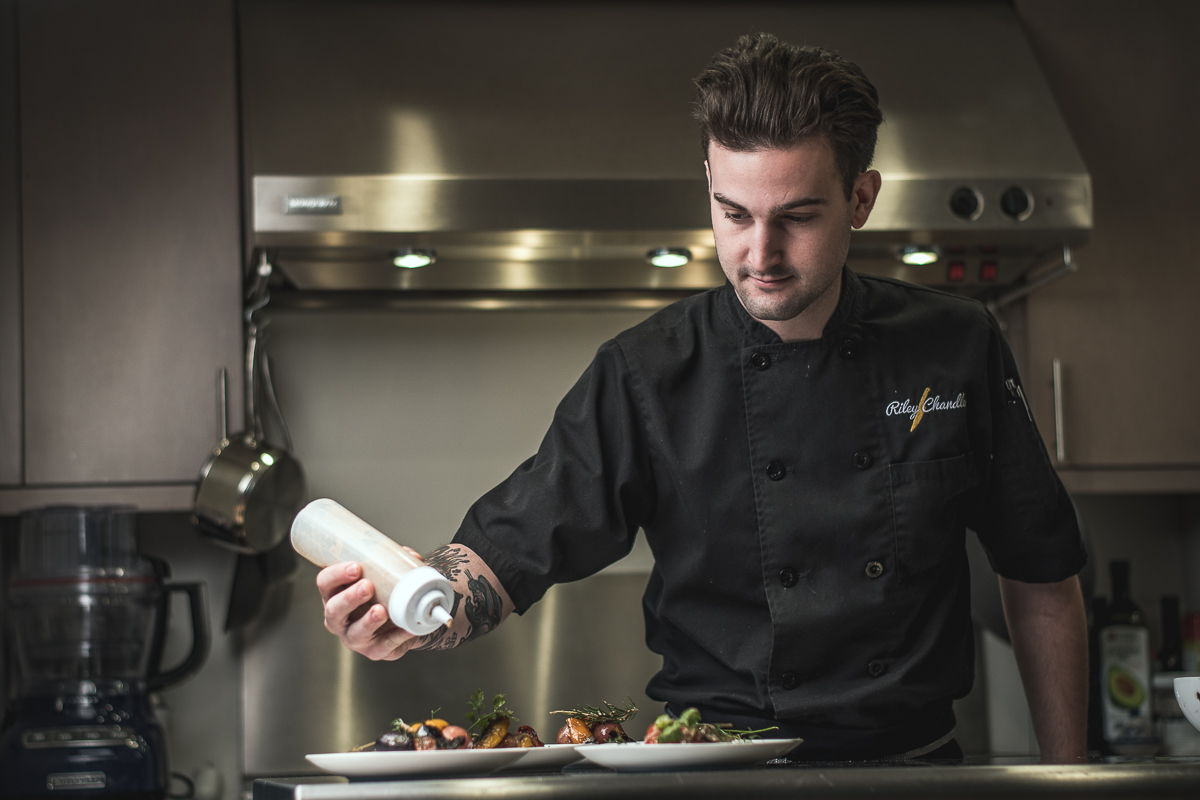
“The basics of mountain climbing before you actually climb a big mountain require thorough knowledge of the territory and use of the tools. Cooking is this way as well; before you can master cooking, you need to master use of a knife. If you want to advance in your own cuisine, you study a region and its flavors and then teach yourself how to apply them.
Having the knowledge and time to practice for a strong foundation or having a mentor to help you lay that foundation I think is the most important thing in cooking when you’re coming out the gate. When there’s millions of flavor combinations, having guidance on where to start is key.”
View our June 2017 Nine on the Line with Riley Chandler.
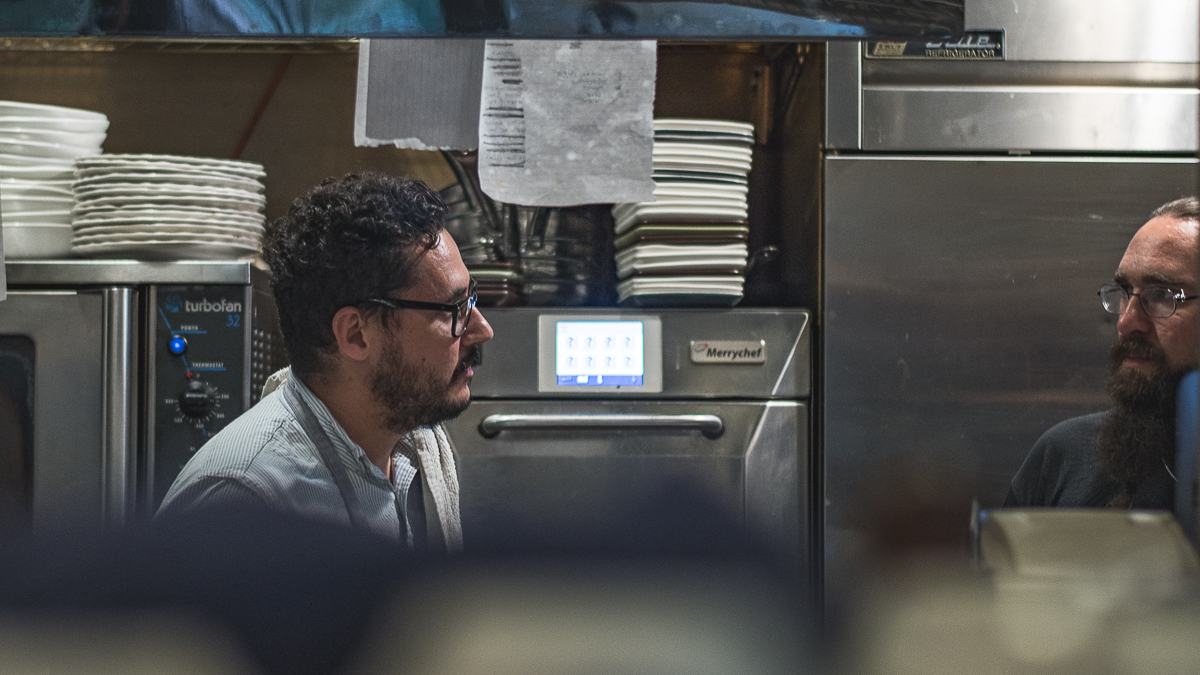
“The first thing I’d offer is that, in my experience, is that you never get there. What is so beautiful about cooking is that there is an endless amount to absorb. One thing I consistently notice about Michelin three-starred chefs is their admission of total ignorance in one realm or another. There is always a cook somewhere who can bring flavors better and more interesting, who can bring out textures you never thought of. As cooks, it’s our job to seek that out and learn.
In Tucson, you can learn something new about food every single day.
Another piece of advice I would offer is to not get (obsessively) caught up in the trappings of ‘industry’ culture. I love the hardscrabble restaurant world and its traditions, I’m emotionally attached to it. It’s an honor to be a tiny part of the chain of this craft, but I would also say that a good cook has to be well rounded. The best plates of food I’ve had seem to be informed by the universe; by music, politics, poetry, love, melancholy, joy, poverty, heartbreak, and on and on. It does not have to be all new jackets, lightening fast ticket times and yelling ‘behind’ more efficiently than the next person. Although that all helps too. Focus on the the ingredients, their simple preparation and the history of cuisine. Slowly and after much consideration your own vision and palate will start to speak up.
Live the full life of the mind
Exhilarated by new ideas
Intoxicated by the
Romance of the unusual
– Ernest Hemingway, A Moveable Feast”
View our December 2017 Nine on the Line with Mahmoud Elbarasi.
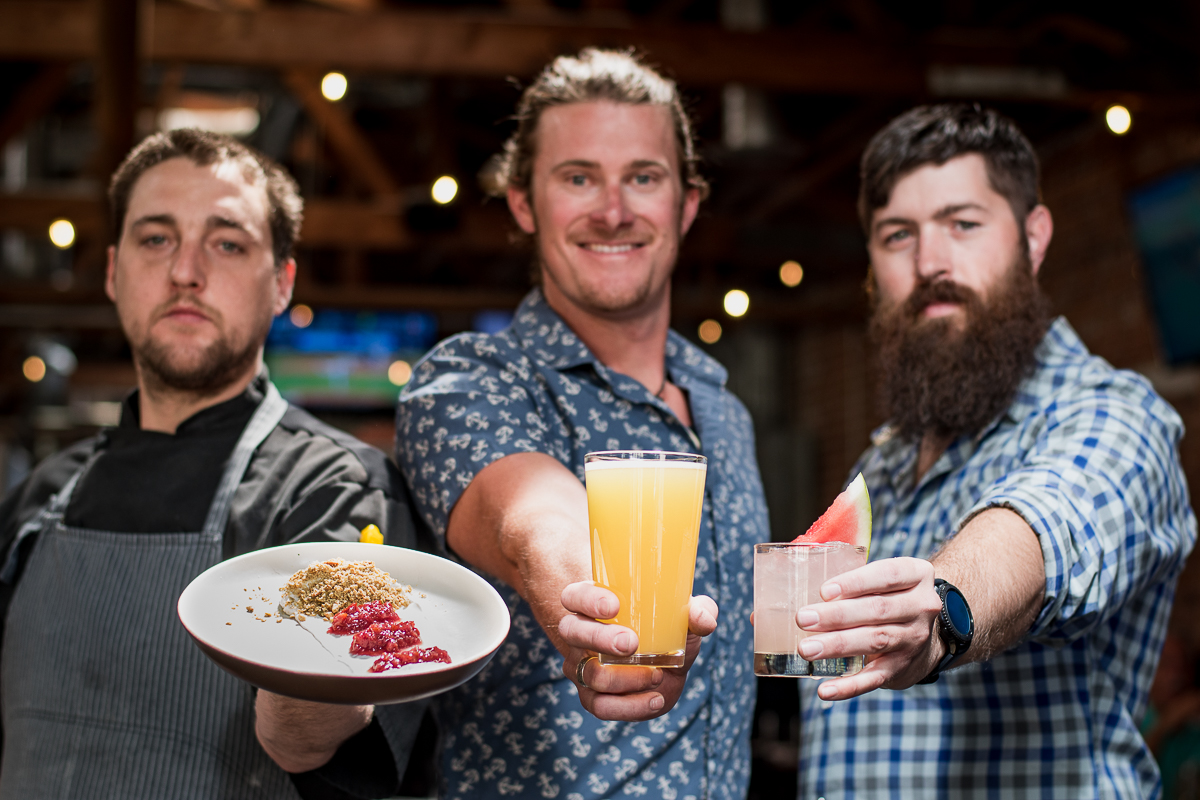
“In my career, I’ve come across a few young men and women with absolutely zero restaurant experience with that thought in their head. It’s normally something that can be remedied within working just a couple of weeks at a restaurant and realizing the gravity of the situations. Just like anything else in life it takes hard work and dedication. You have to try and fail and try and try and try again. To be a chef it really takes a special kind of person, everyone has off days and the restaurant industry can be very unforgiving to these things. When the rush comes it does not care about whether or not you just cut or burned yourself. To be a chef you have to be prepared to constantly deal with high-pressure situations no matter what you have going on in the rest of your life, the tickets will continue to pour in and everything needs to be perfect on the plate every single time — consistency is key to success.
For years, the people who have been cooking the food in restaurants have been forced into these roles, punk rockers and hip hoppers and ex-cons who found a safe haven in the kitchen because it attracts people with a wild side. So if you really think you have what it takes, my suggestion would be to walk through the fire and find out how thick your skin really is.”
View our July 2017 Nine on the Line with Matt Kraiss.
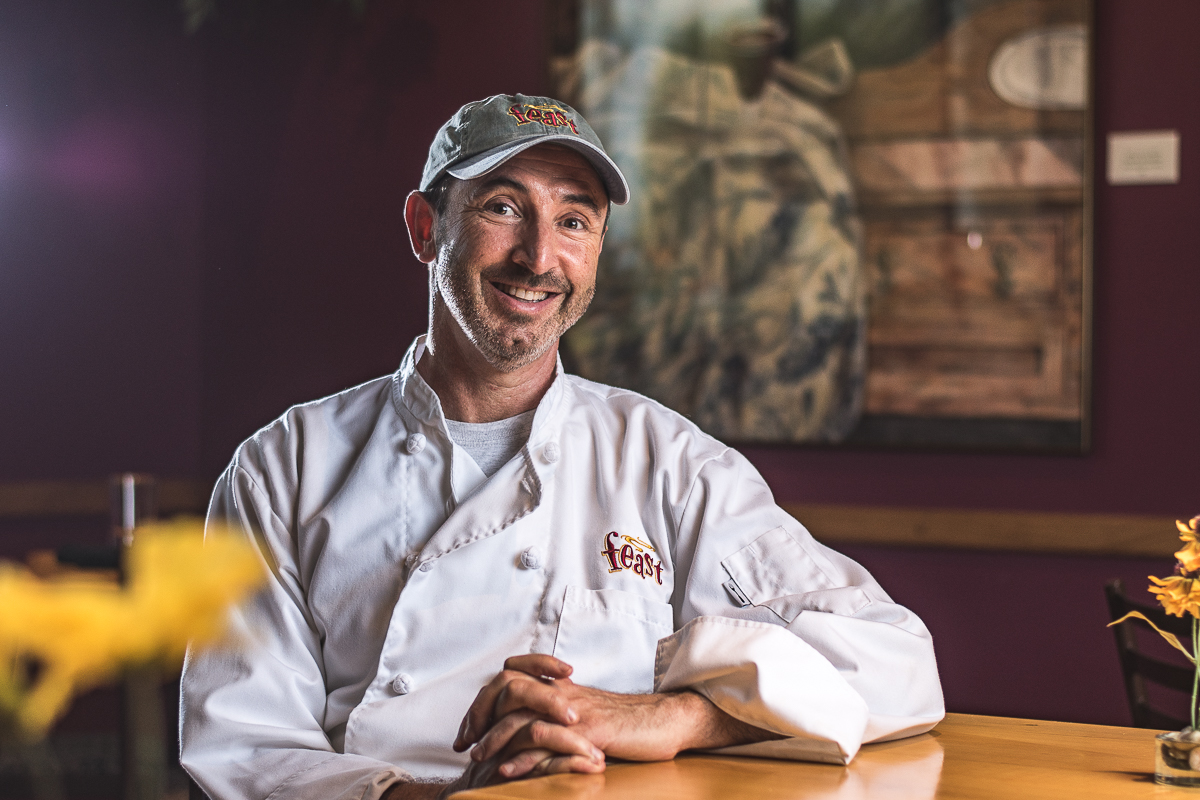
“Here’s my advice: by no means should you shell out tens of thousands of dollars for cooking school until you know you want to work in restaurants for the foreseeable future. Television has romanticized what a chef does to a ridiculous degree. Nobody tells you how hot it is on the line and that you go home with salt caking your shirt at the end of the night. Nobody tells you that you’ll be on your feet for ten hours or more. Nobody reminds you that you’ll be working weekends and holidays for your entire career. And nobody tells you that for your first ten years in the industry, you won’t be scratching you chin as you decide what you use to thicken the sauce on your sea bream; instead, you’ll be making someone else’s dishes over and over, and with any luck you’ll learn something along the way.
So it behooves you to go get an entry level job in a restaurant for two years before you make a potentially crippling financial commitment, only to find yourself competing for an entry-level job with people who have actual work experience. It breaks my heart to see people put themselves in that position only to discover that they’re either being beaten out for jobs by people without the culinary degree, or worse, that they’re spending a fortune only to discover that this job completely different from what they thought it was.”
View our September 2017 Nine on the Line with Doug Levy.
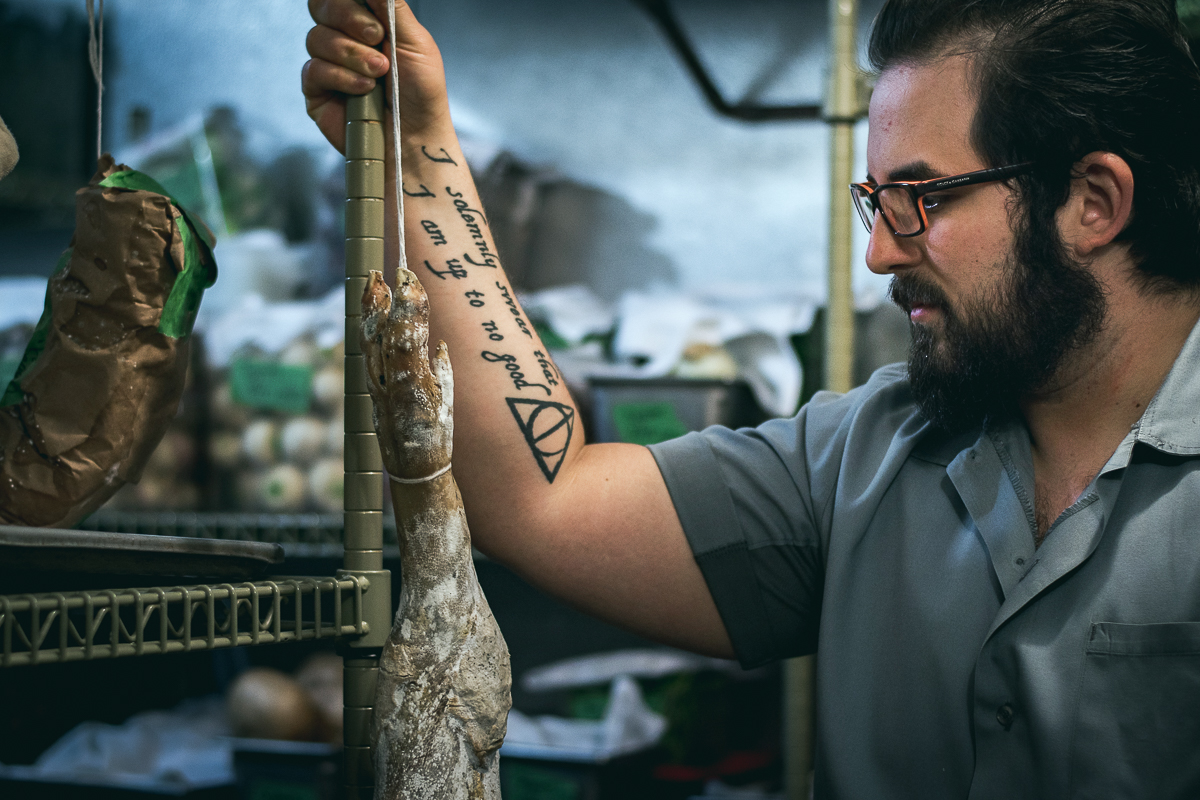
“I have a feeling a lot of these are going to be pretty similar, but it’s because it’s very true. Don’t do this because you like Food Network and it looks fun. Don’t do this because you think it’s a neat hobby and you throw just the loveliest dinner parties. If you go the culinary school route, don’t expect to be a chef right out of school. I’d say 95% of the people I went to school with don’t even work in kitchens anymore, most didn’t last a year. This isn’t for the faint-hearted, you have to seriously love this to do it. You’re saying goodbye to holidays, weekends, family gatherings, what would be considered a normal social life. Get ready for long hours, burns, cuts, constantly being on your feet, and a high stress environment. [You’re] probably gonna develop a bad habit of some sort, having nightmares about the god damn ticket machine going off or someone spilling your demi that took you three days to make. (I was actually mad at someone a whole shift one time, because they spilled all my demi in a dream).
Don’t do this if you’ve never worked in a kitchen before. If you’re contemplating culinary school, get a job in a kitchen either before or during. Do it for at least a year. Get burned, cut, yelled at. You’ll know real fast if it’s the life for you.
Do this if you’re ready to become a part of probably the closest knit group of people there is. You’re going to see these people more than your actual family. You become family with them all and that is a very unique thing you get to be a part of. Do this if you love it, love the adrenaline rush, pushing yourself out of the weeds, love cooking and food, and like, really love it. Love it by appreciating the farmers, butchers, fisherman and others who contribute to your craft. Respect your ingredients, utilize them to the fullest. Take notes, always keep learning. Read. A lot. Always strive to be better, always keep tweaking things. Get ready to get a high off of watching someone eat something you just made and their face lights up. Do not be afraid of salt, fat, and acid.
And, TASTE YOUR FOOD.”
View our April 2017 Nine on the Line with Roderick LeDesma.
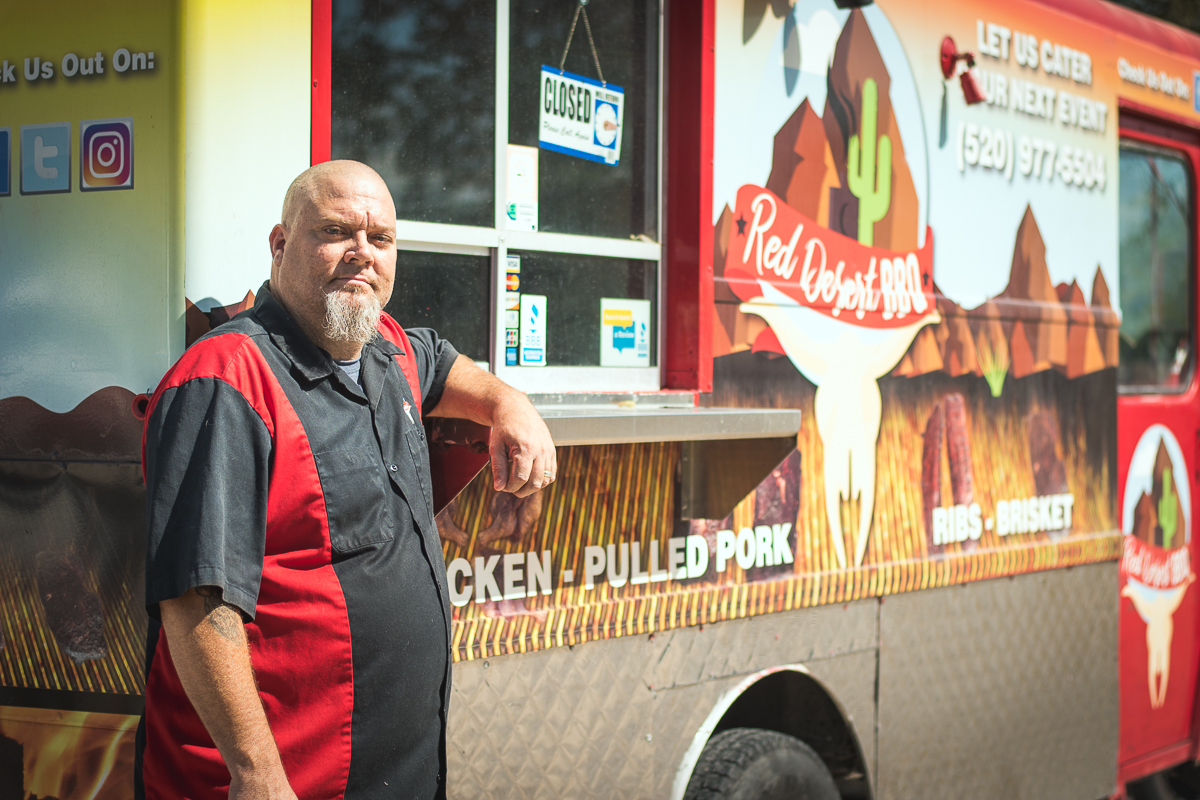
“Take most of what you see on that cooking network and throw it out the window. Be prepared to work long hours in sometimes very hot conditions and under extreme pressure. You most likely will have to work your way up from the dish pit. It will take years to achieve the status of chef, if you even get that far.
Schooling has its pros and cons, so make sure that’s something you have put a lot of thought into, it’s not necessary, but it can teach you the basics and give you a jump start on this path. Be prepared to have things thrown at you by old school chefs when you make mistakes, (yes, I have had pans thrown at me). If you truly love cooking and putting smiles on peoples faces, then you’ll succeed in the industry. We are like a big family and reap the rewards this industry offers. Good luck.”
View our December 2017 Nine on the Line with David Martin.
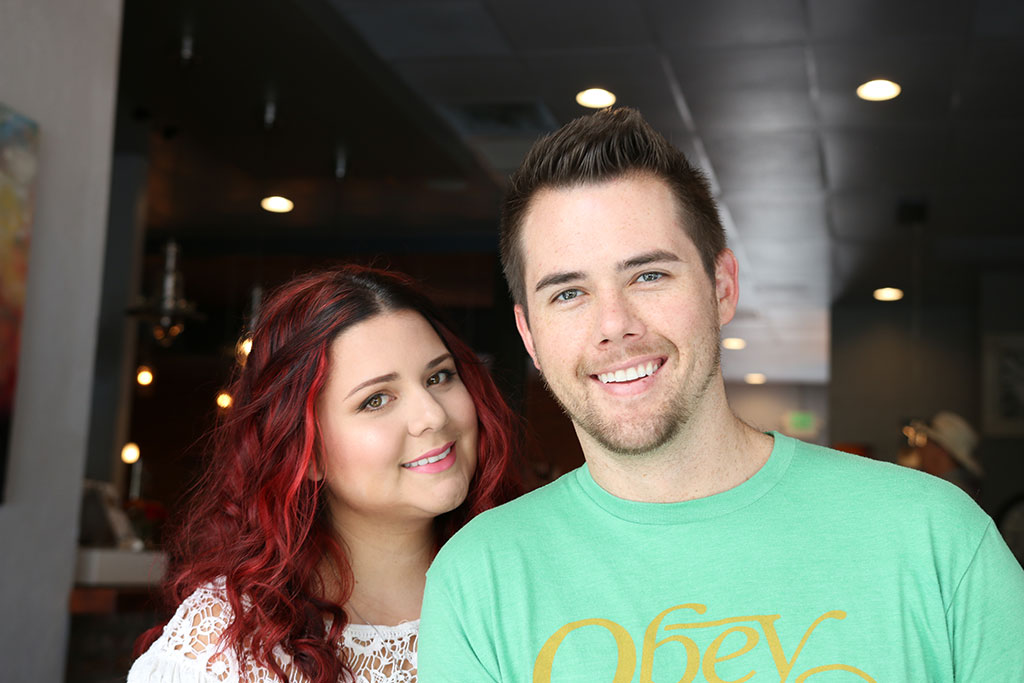
“Make sure you are doing it for the right reason, the love of food, the process and service, if it’s money you’re interested in then the best advice is to move on.
When you’re starting out, work in scratch kitchens, accept all positions as part of steps of learning even if it’s less money. Listen, take lots of notes, take an interest in where food comes from and learn about seasonal ingredients. Have a higher standard and work harder than the people around you. If you can do all of this and you end your day happy then you will be just fine. Good luck!”
View our September 2015 Nine on the Line with Nikki & Matt Thompson.
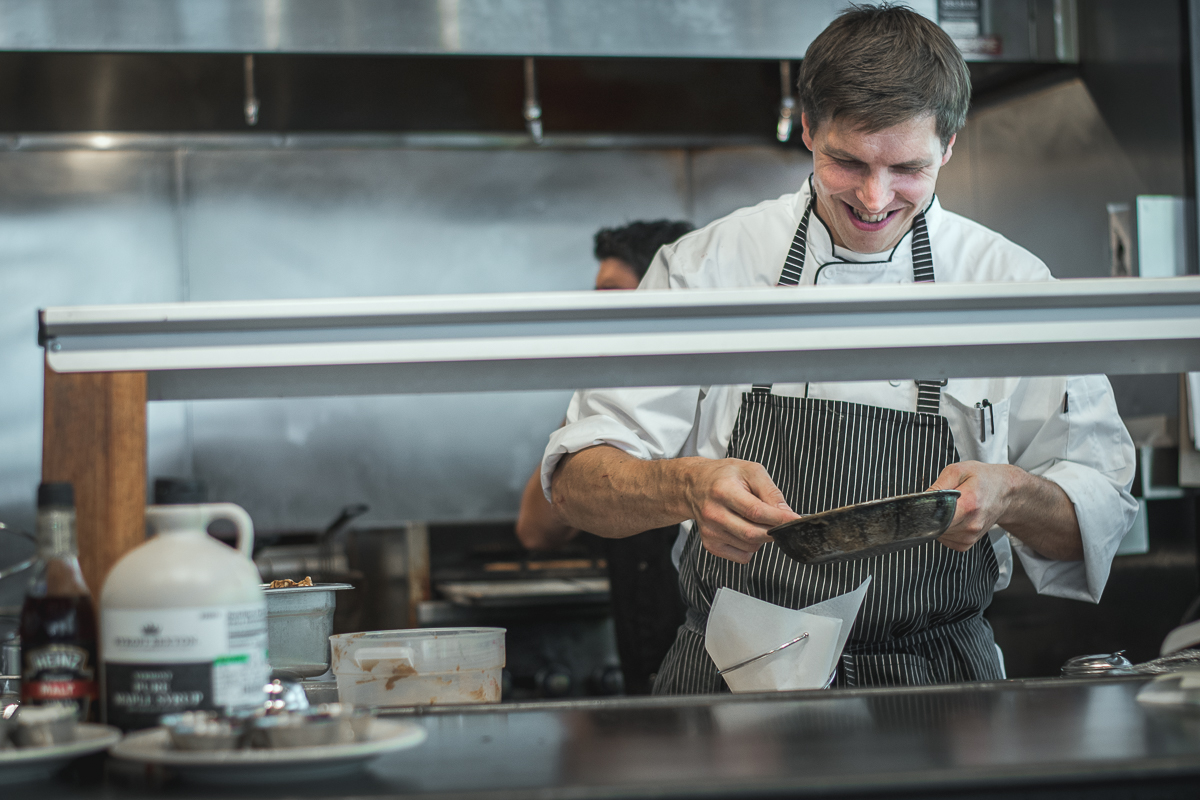
“Get good experience; pick the kitchen were you can learn skills. Don’t get comfortable in one kitchen; this will limit your management style. Put in the time that’s needed to learn the trade; ask if you can practice some skills outside your regular schedule. Ask to make family meals and/or use the staff meals for practice on different techniques and it teach you timing.
[Do you] understand what it is like to not be at home during holiday seasons? And irregular schedules? This was asked/told many times to me as an apprentice, but I never realized it would be much later that I understand the importance of the question; now this is becoming harder when you have a family of your own.
[Why do you] want to become a chef? The reason, in my opinion, should be making good food for the people no matter what you’re cooking. Yes, even staff meals need to be good.”
View our July 2017 Nine on the Line with Marcus van Winden.
Jackie Tran is a Tucson-based food writer, photographer, culinary educator, and owner-chef of the food truck Tran’s Fats. Although he is best known locally for his work for Tucson Foodie, his work has also appeared in publications such as Bon...